Related Research Articles
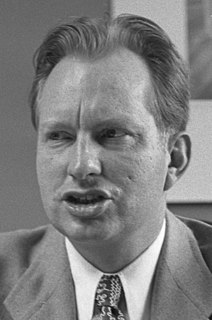
Lafayette Ronald Hubbard was an American author, primarily of science fiction and fantasy stories, who is best known for having founded the Church of Scientology. In 1950, Hubbard authored Dianetics: The Modern Science of Mental Health and established a series of organizations to promote Dianetics. In 1952, Hubbard lost the rights to Dianetics in bankruptcy proceedings, and he subsequently founded Scientology. Thereafter, Hubbard oversaw the growth of the Church of Scientology into a worldwide organization.
Writers of the Future (WOTF) is a science fiction and fantasy story contest that was established by L. Ron Hubbard in the early 1980s. A sister contest, Illustrators of the Future, presents awards for science fiction art. Hubbard characterized the contest as a way of "giving back" to the field that had defined his professional writing life. The contest has no entry fee and is the highest-paying contest for amateur science-fiction and fantasy writers. Notable past winners of WOTF include Stephen Baxter, Karen Joy Fowler, James Alan Gardner, Nina Kiriki Hoffman, Jay Lake, Michael H. Payne, Patrick Rothfuss, Robert Reed, Dean Wesley Smith, Sean Williams, Dave Wolverton, Nancy Farmer, and David Zindell.
In Scientology, Xenu, also called Xemu, was the dictator of the "Galactic Confederacy" who brought billions of his people to Earth in DC-8-like spacecraft 75 million years ago, stacked them around volcanoes, and killed them with hydrogen bombs. Official Scientology scriptures hold that the thetans of these aliens adhere to humans, causing spiritual harm.

Algirdas Jonas "Algis" Budrys was a Lithuanian-American science fiction author, editor, and critic. He was also known under the pen names Frank Mason, Alger Rome, John A. Sentry, William Scarff, and Paul Janvier. He is known for the influential 1960 novel Rogue Moon.

Mission Earth is a ten-volume science fiction novel series by L. Ron Hubbard. Hubbard died three months after the publication of volume 1, and other volumes were published posthumously.
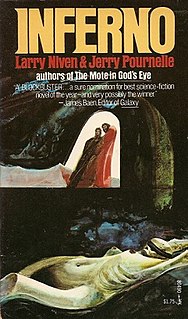
Inferno is a fantasy novel written by Larry Niven and Jerry Pournelle, published in 1976. It was nominated for the 1976 Hugo and Nebula Awards for Best Novel.
Robert David Reed is a Hugo Award-winning American science fiction author. He has a Bachelor of Science in Biology from the Nebraska Wesleyan University. Reed is an "extraordinarily prolific" genre short-fiction writer with "Alone" being his 200th professional sale. His work regularly appears in Asimov's, Fantasy & Science Fiction, and Sci Fiction. He has also published eleven novels. As of 2010, Reed lived in Lincoln, Nebraska with his wife and daughter.

John David Wolverton, better known by his pen names Dave Wolverton and David Farland, was an American author, editor, and instructor of online writing workshops and groups. He wrote in several genres but was known best for his science fiction and fantasy works. Books in his Runelords series hit the New York Times bestsellers list.
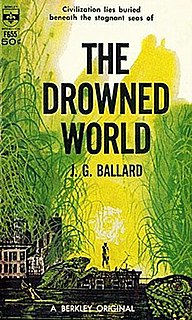
The Drowned World is a 1962 science fiction novel by British writer J. G. Ballard. The novel depicts a post-apocalyptic future in which global warming caused by heightened solar radiation has rendered much of the Earth's surface uninhabitable. The story follows a team of scientists researching environmental developments in a flooded, abandoned London. The novel is an expansion of a novella of the same title first published in Science Fiction Adventures magazine in January 1962, Vol. 4, No. 24.

Battlefield Earth: A Saga of the Year 3000 is a 1982 science fiction novel written by L. Ron Hubbard, founder of Scientology. He also composed a soundtrack to the book called Space Jazz.
Leonard Paul Carpenter is an American writer of fantasy and science fiction. He writes as Leonard Carpenter and Leonard P. Carpenter.
New religious movements and cults have appeared as themes or subjects in literature and popular culture, while notable representatives of such groups have themselves produced a large body of literary works.
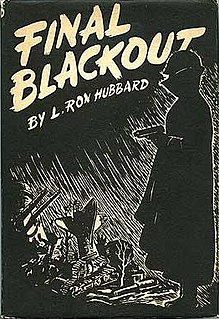
Final Blackout is a dystopic science fiction novel by American writer L. Ron Hubbard. The novel is set in the future and follows a man known as "the Lieutenant" as he restores order to England after a world war. First published in serialized format in 1940 in the science fiction magazine Astounding Science Fiction, Final Blackout was published in book form in 1948 by The Hadley Publishing Co. Author Services Inc. published a hardcover edition of the book in 1988, and in 1989 the Church of Scientology-affiliated organization Bridge Publications said that a film director named Christopher Cain had signed a contract to write and direct a movie version based on the book.

To the Stars is a science fiction novel by American writer L. Ron Hubbard. The novel's story is set in a dystopian future, and chronicles the experiences of protagonist Alan Corday aboard a starship called the Hound of Heaven as he copes with the travails of time dilation from traveling at near light speed. Corday is kidnapped by the ship's captain and forced to become a member of their crew, and when he next returns to Earth his fiancee has aged and barely remembers him. He becomes accustomed to life aboard the ship, and when the captain dies Corday assumes command.
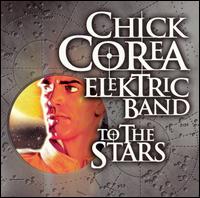
To the Stars is an album by American jazz fusion group the Chick Corea Elektric Band, released on August 24, 2004, by Stretch Records. Jazz musician Chick Corea, a longtime member of the Church of Scientology, was inspired by Scientology founder L. Ron Hubbard's science fiction 1954 novel To the Stars. Hubbard's book tells the story of an interstellar crew which experiences the effects of time dilation due to traveling at near light speed. A few days experienced by the ship's crew could amount to hundreds of years for their friends and family back on Earth.

In the Courts of the Crimson Kings is a 2008 alternate history science fiction novel by American writer S. M. Stirling.
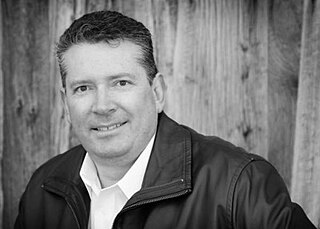
John D. Brown is an American author who writes thrillers and epic fantasy.
Lafayette Ronald Hubbard, better known as L. Ron Hubbard, was an American pulp fiction author. He wrote in a wide variety of genres, including science fiction, fantasy, adventure fiction, aviation, travel, mystery, western, and romance. His United States publisher and distributor is Galaxy Press. He is perhaps best known for his self-help book, the #1 New York Times bestseller Dianetics: The Modern Science of Mental Health, and as the founder of the Church of Scientology.
This is complete bibliography of American science fiction and fantasy author Dave Wolverton, who also writes under the pseudonym David Farland.

Alec Nevala-Lee is an American novelist, biographer, and science fiction writer. He was a Hugo and Locus Award finalist for the group biography Astounding: John W. Campbell, Isaac Asimov, Robert A. Heinlein, L. Ron Hubbard, and the Golden Age of Science Fiction. His next book will be Inventor of the Future, a biography of the architectural designer and futurist Buckminster Fuller.
References
- Wolverton, Dave On My Way to Paradise (1989) - Originally published in L. Ron Hubbard Presents Writers of the Future, Vol. III